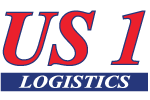The trucking industry, often seen as the backbone of global commerce, is undergoing a major transformation due to advancements in technology. From digital fleet management to autonomous vehicles, technological innovations are reshaping how freight is transported, managed, and delivered. In an industry where efficiency, safety, and timely delivery are paramount, these technological advancements are not just enhancing operations—they are revolutionizing the entire trucking ecosystem.
1. Fleet Management and Telematics
One of the most significant advancements in trucking technology is the development of sophisticated fleet management systems and telematics. Fleet managers can now monitor vehicles in real time, track their locations, assess driver performance, and predict maintenance needs.
Telematics combines GPS tracking with onboard diagnostics, allowing fleet managers to gather data on fuel consumption, engine health, and driving behavior. This data is invaluable for optimizing routes, reducing downtime, and improving overall efficiency. Some key benefits of telematics include:
- Fuel Efficiency: By tracking driving habits, such as idling or speeding, fleet managers can coach drivers on how to reduce fuel consumption.
- Predictive Maintenance: Telematics can predict when a truck will need maintenance, reducing the likelihood of breakdowns and keeping trucks on the road longer.
- Improved Safety: With real-time data on driver behavior, fleet managers can detect unsafe driving patterns and take action before accidents occur.
2. The Rise of Autonomous Trucks
Autonomous trucks are one of the most groundbreaking technological innovations in the industry. While fully autonomous trucks (Level 5) are still years away from being widely adopted, there are already semi-autonomous (Level 2 and 3) trucks on the road.
Companies like Waymo, Tesla, and Daimler are developing trucks with advanced driver-assistance systems (ADAS) that can handle steering, acceleration, and braking under certain conditions. These technologies are poised to bring several benefits:
- Increased Safety: Autonomous systems can react faster than human drivers to avoid accidents, and they do not suffer from fatigue or distractions.
- Cost Efficiency: Autonomous trucks could reduce the need for rest breaks, allowing for continuous operation and faster delivery times.
- Labor Shortages: With a persistent shortage of truck drivers, autonomous trucks could help alleviate the strain on the workforce, particularly for long-haul routes.
While many truck drivers may worry about job displacement, the near future of autonomous trucking will still require human oversight. Remote operators or on-board supervisors will likely manage these trucks, ensuring human intervention in complex or urban driving environments.
3. Electronic Logging Devices (ELDs)
The introduction of Electronic Logging Devices (ELDs) has transformed how drivers record and manage their hours on the road. ELDs automatically track a driver’s time spent driving, resting, and idling, ensuring compliance with hours-of-service (HOS) regulations.
Before ELDs, drivers manually recorded their hours in logbooks, which were prone to errors or deliberate falsification. ELDs provide accurate and tamper-proof data, making it easier to avoid violations and reduce the risk of driver fatigue, which can lead to accidents.
Some benefits of ELDs include:
- Improved Compliance: ELDs ensure that drivers stick to mandated rest periods, preventing overwork and reducing accidents caused by fatigue.
- Reduced Paperwork: Automating logkeeping means less time spent on administrative tasks and more time driving.
- Data Insights: Fleet managers can use ELD data to identify trends in driver performance, enabling better scheduling and route planning.
4. Electric Trucks and Sustainability
The trucking industry is known for its significant carbon footprint, but the rise of electric trucks is set to change that. Traditional diesel-powered trucks contribute to air pollution and greenhouse gas emissions, making the shift toward electric vehicles (EVs) critical for sustainability.
Companies like Tesla, Volvo, and Nikola are leading the charge in developing electric trucks with impressive ranges and performance capabilities. While the adoption of electric trucks is still in its early stages, the benefits are clear:
- Reduced Emissions: Electric trucks produce zero tailpipe emissions, contributing to cleaner air and a lower environmental impact.
- Lower Operating Costs: EVs have fewer moving parts than diesel trucks, which means reduced maintenance costs and savings on fuel.
- Government Incentives: Many governments are offering tax breaks and incentives for companies that adopt electric trucks, further encouraging their use.
As battery technology improves and charging infrastructure expands, electric trucks will become more viable for long-haul routes, significantly reducing the trucking industry’s reliance on fossil fuels.
5. Data Analytics and AI in Route Optimization
Route optimization has always been a priority for trucking companies, and with the rise of data analytics and artificial intelligence (AI), it has become more precise than ever. AI-driven algorithms can analyze massive amounts of data, including weather conditions, traffic patterns, fuel prices, and delivery windows, to determine the most efficient routes for each trip.
The benefits of AI-powered route optimization include:
- Time Savings: By avoiding traffic jams and road closures, AI can ensure timely deliveries, improving customer satisfaction.
- Fuel Efficiency: Optimized routes can reduce unnecessary mileage, leading to lower fuel consumption and operating costs.
- Driver Satisfaction: Smarter routing reduces stress for drivers, allowing them to complete their routes faster and with fewer delays.
In addition, AI can be used for load optimization, ensuring that trucks are loaded in the most efficient manner to maximize space while maintaining safety and balance.
6. Blockchain for Supply Chain Transparency
Blockchain technology is often associated with cryptocurrencies, but its potential in the trucking industry lies in supply chain transparency and security. Blockchain allows for a decentralized and immutable ledger, providing real-time tracking and verification of goods as they move through the supply chain.
In trucking, blockchain can be used to:
- Reduce Fraud: With every transaction and shipment being securely recorded, blockchain can help reduce fraud and tampering in the supply chain.
- Improve Visibility: Shippers, carriers, and receivers can access real-time information on the location and status of goods, enhancing transparency.
- Streamline Payments: Blockchain can automate and secure the payment process, reducing disputes over delivery times or damaged goods.
By providing a single source of truth for all parties involved, blockchain enhances accountability and ensures that goods are transported efficiently and securely.
7. Automation in Warehousing and Loading
Automation is not just transforming the trucks themselves—it’s also revolutionizing the way goods are handled in warehouses and loading docks. Technologies such as robotics, automated guided vehicles (AGVs), and conveyor systems are streamlining the loading and unloading process, reducing labor costs and speeding up operations.
Automated systems can sort and load goods more quickly and accurately than human workers, reducing the risk of damage and ensuring that trucks are loaded to capacity. This increases efficiency and allows drivers to get back on the road faster.
8. Mobile Apps and Connectivity
Smartphones and mobile apps have brought a new level of connectivity to the trucking industry, empowering drivers with tools that make their jobs easier. Mobile apps can provide real-time information on:
- Route Changes: Drivers can receive instant updates on traffic conditions or road closures and adjust their routes accordingly.
- Weather Alerts: Apps can send drivers alerts about severe weather conditions, helping them stay safe and make informed decisions.
- Communication: Mobile apps facilitate communication between drivers and fleet managers, enabling better coordination and quicker problem-solving.
Additionally, apps that manage fueling, truck stops, and parking availability provide essential support, allowing drivers to plan their trips more effectively.
9. Safety Technologies
With safety being a top priority in the trucking industry, new technologies are helping to prevent accidents and protect both drivers and other road users. Collision avoidance systems, lane departure warnings, and automatic braking systems are becoming standard in many trucks, reducing the risk of accidents caused by human error.
Advanced dash cams with AI capabilities can analyze a driver’s behavior, detecting signs of fatigue or distraction and alerting the driver to take action. These systems are not only preventing accidents but are also lowering insurance premiums for companies that adopt them.
10. The Future of Trucking: Fully Connected Ecosystems
The future of trucking lies in the creation of a fully connected ecosystem, where vehicles, drivers, fleet managers, and customers are all linked through a network of smart technologies. This interconnected system will leverage data from trucks, warehouses, shipping ports, and other parts of the supply chain to create an environment where goods are moved seamlessly, efficiently, and safely.
As technology continues to evolve, we can expect even greater innovations that will redefine the trucking industry, making it more sustainable, efficient, and resilient in the face of growing global demands.
Conclusion: Embracing Technology for a Smarter Industry
Technology is reshaping the trucking industry at an unprecedented pace. From autonomous trucks and electric vehicles to AI-powered route optimization and blockchain for supply chain transparency, these innovations are revolutionizing how goods are transported across the world.
While these changes present challenges, they also bring exciting opportunities for trucking companies, drivers, and the broader supply chain. By embracing these advancements, the trucking industry is positioning itself for a smarter, safer, and more sustainable future.




Recent Comments